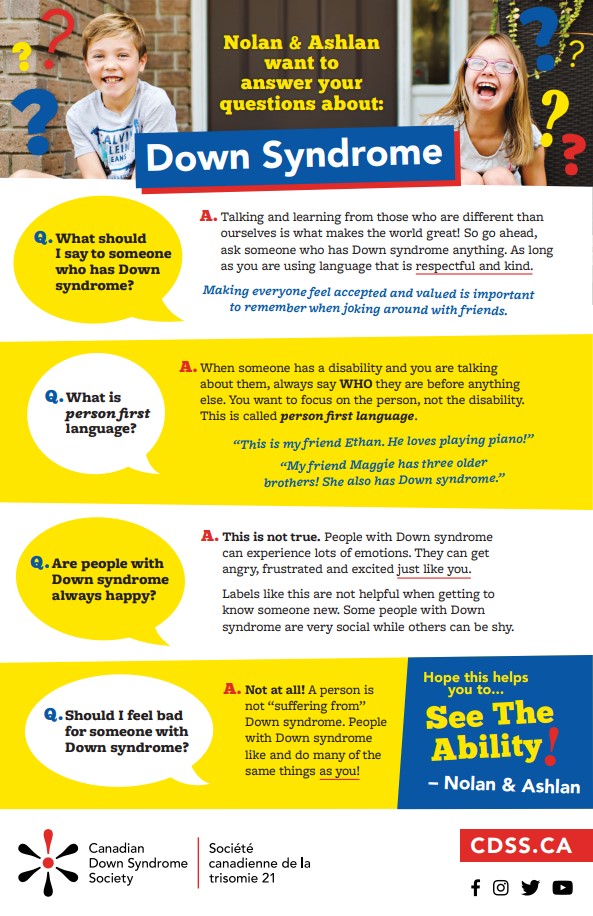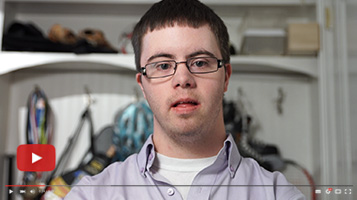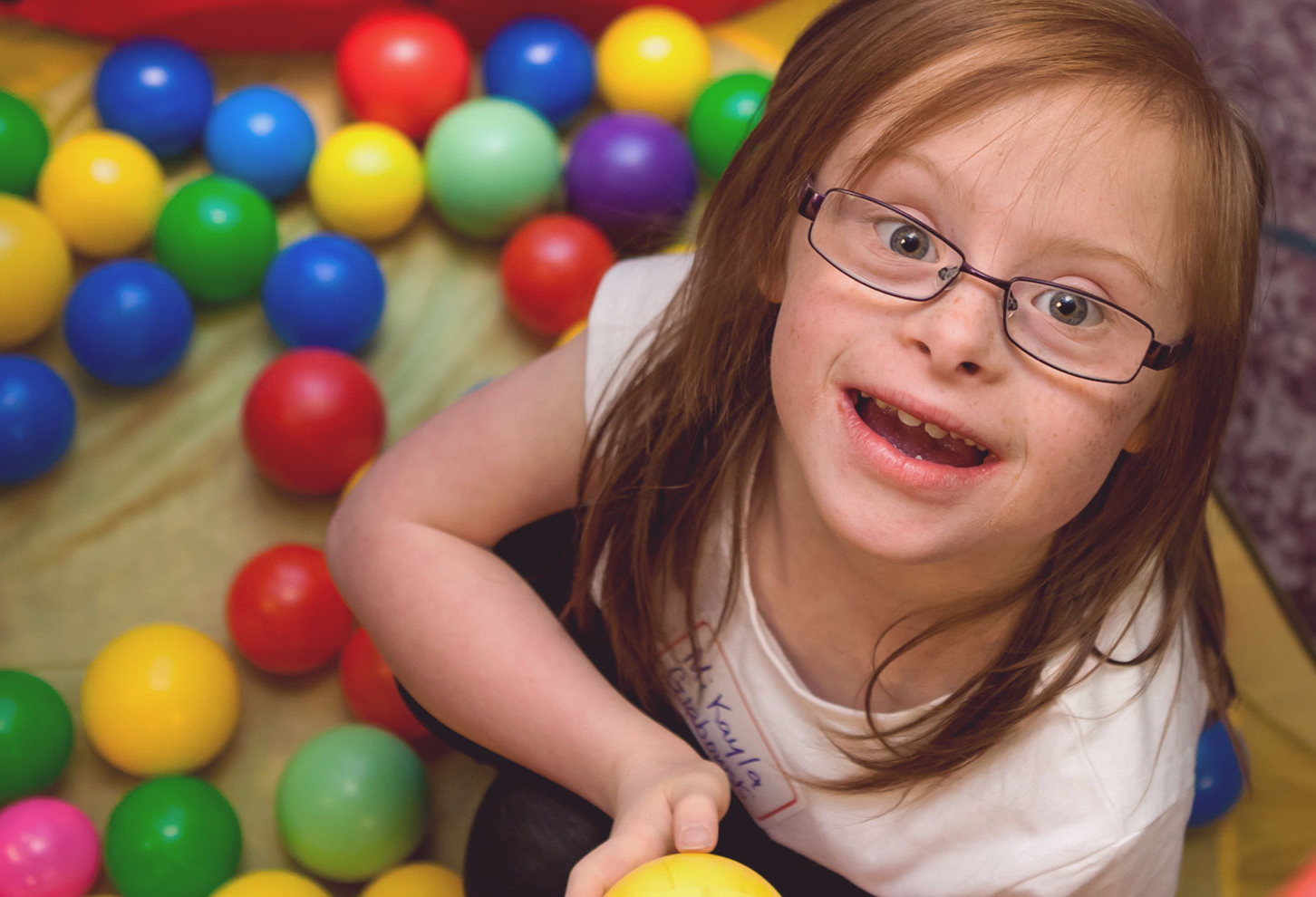About Down Syndrome
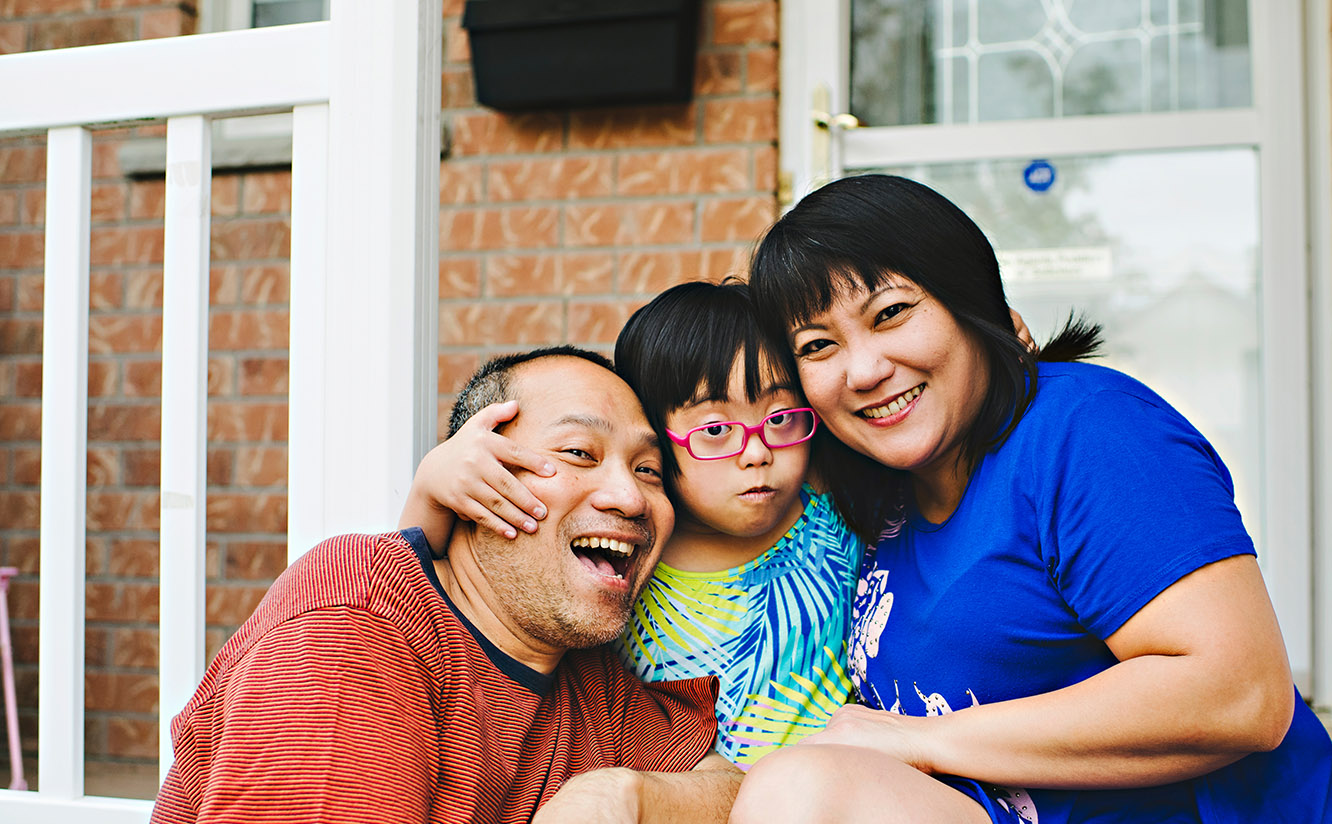
What is Down Syndrome?
The chance of having a baby with Down syndrome increases with the mother’s age; however, about half of babies born with Down syndrome are born to mothers under 35 years old simply because more young women are having babies (https://www.ndsccenter.org/wp-content/uploads/2017-PTP-Eng.pdf).
There are three types of Down syndrome and the type is identified from the chromosome studies done at birth to confirm the diagnosis of Down syndrome:
No matter which type of Down syndrome your child has, the effects of the extra genetic material will be unique to them. They will have their own strengths, likes, dislikes, talents, personality and temperament. Think of your baby first as a child. Down syndrome is just part of who they are.
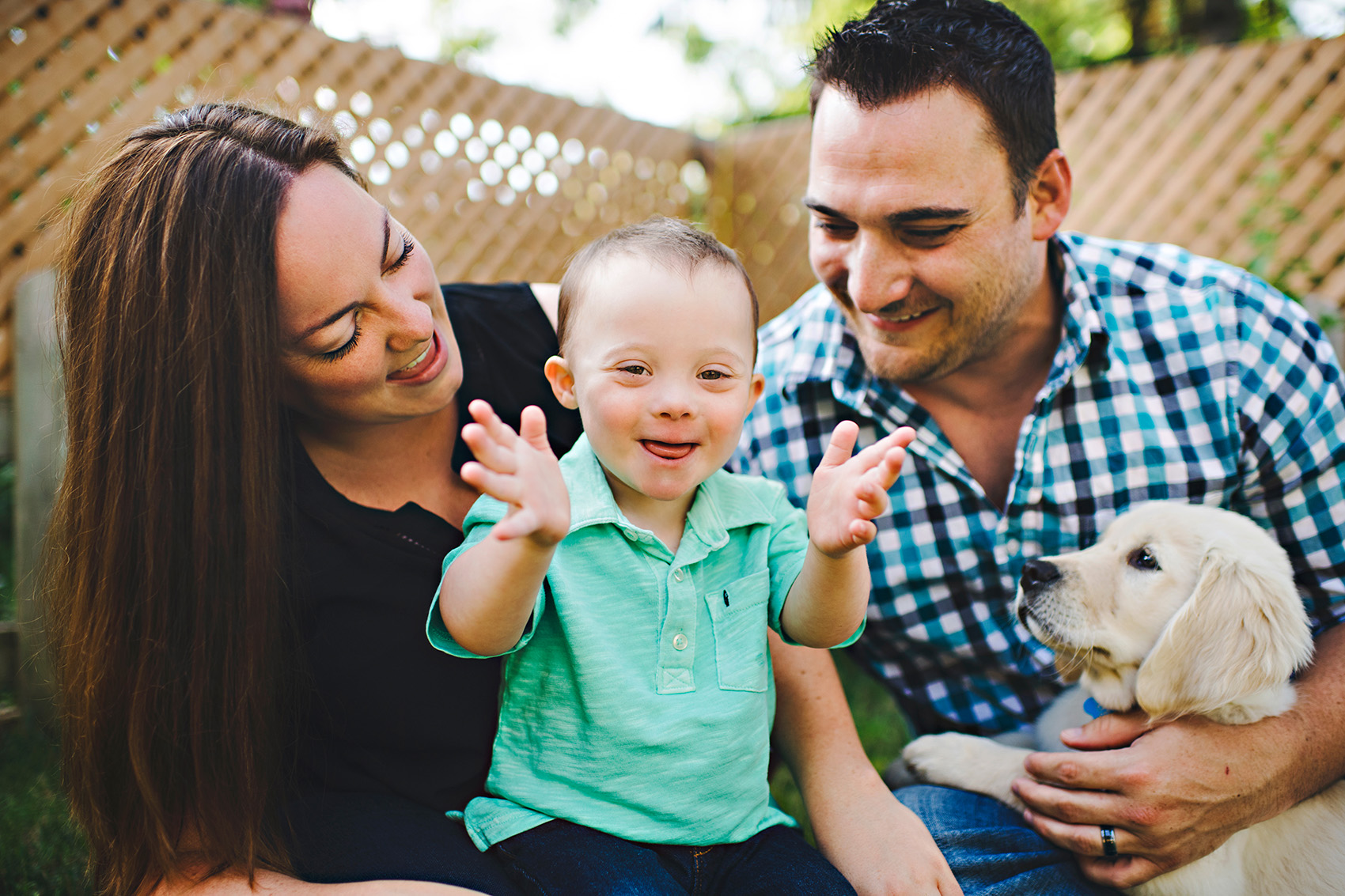
People with Down syndrome have:
People with Down syndrome might look similar and share some common physical features, but most of all, they will look like their family members and will have their unique personality.
Some health concerns for people with Down syndrome may include:
It is important to remember that not all people with Down syndrome will experience these health concerns. Most health issues associated with people with Down syndrome also occur in the general population and in many cases, the health conditions can be successfully treated and managed by careful monitoring.
(http://www.downsyndrome.org.au/documents/resources/prenatal/DSA_AGuideForExpectantParents_Resource.pdf)
How to Talk About Down Syndrome
Use appropriate language when referring to any group of people. Correct terminology helps reduce prejudice, misconceptions, and stereotypes. This guide will help you when talking about Down syndrome.

